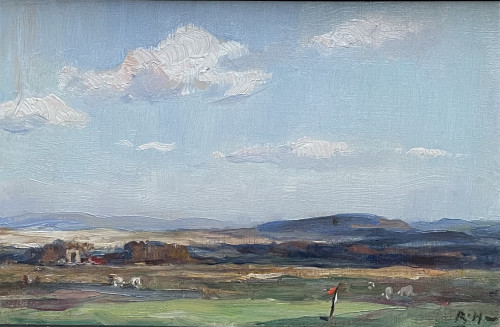- HOME
-
- View All Items
- New Arrivals
- Featured Items
- Artists
-
- View All
- Contemporary
- Birmingham School
- Cotswold Group
- Landscape
- Urban Townscape
- Abstract
- Animals/Birds
- Arts & Crafts
- British Impressionist
- Botanical
- Design/Industrial
- Fantasy/Fairy Subjects
- Female Artists
- Figurative
- Historical
- Illustration/Cartoon
- Marine
- Military/War Artist
- Modern British
- Pre-raphaelite/ Romantic/ Aesthetic
- Nude
- Portrait
- Prints
- Scottish
- Sculpture
- Sporting
- Still Life
- Theatrical
- Interiors/Architectural
-
ARCHIVE
Genre
- View All
- Contemporary
- Birmingham School
- Cotswold Group
- Landscape
- Urban Townscape
- Abstract
- Animals/Birds
- Arts & Crafts
- British Impressionist
- Botanical
- Design/Industrial
- Fantasy/Fairy Subjects
- Female Artists
- Figurative
- Historical
- Illustration/Cartoon
- Marine
- Military/War Artist
- Modern British
- Pre-raphaelite/ Romantic/ Aesthetic
- Nude
- Portrait
- Prints
- Scottish
- Sculpture
- Sporting
- Still Life
- Theatrical
- Interiors/Architectural
- ARTISTS
- Online Exhibitions
- Events
- About
- Contact
Wellington Arch, Hyde Park Corner
Wellington Arch, Hyde Park Corner
ALGERNON TALMAGE, RA (1871-1939)
Wellington Arch, Hyde Park Corner
Signed Oil on panel
25.5 by 35.5 cm., 10 by 14 in.(frame size 37 by 47 cm., 14 by 18 in.)
Talmage was born in Fifield, Oxfordshire, the son of a clergyman. He studied at the Herkomer School in Bushey, one of his fellow students being Lucy Kemp-Welch. He visited Cornwall in 1888 where he and his fellow Bushey student, Arnesby Brown, became associated with the St Ives School.Settling in Cornwall he helped run the Cornish School of Landscape, Figure and Sea Painting with Julius Olsson and later ran his own school with his wife Gertrude Rowe.His teaching method concentrated on outdoor sketching in lively colours and with Impressionist handling. He participated in the first exhibition of the Newlyn Art Gallery where his Moonrise in January was considered to be one of the finest landscapes in the show. After his divorce from Gertrude he left St Ives in 1907 to live in Chelsea where he worked in close association with Hilda Fearon.He held his first solo show at the Goupil Gallery in 1909. In 1918 he was appointed an official war artist in France for the Canadian Government. In London he was a regular exhibitor at the Royal Academy, Royal Society of British Artists, Royal Institute of Painters in Oils and Royal Society of Painter-Etchers and Engravers. He also exhibited at the Paris Salon, winning a silver medal in 1913 and a gold medal in 1922. His work is represented in many public collections. This painting of elegant figures heading towards Hyde Park can be dated to before 1912, when Adrian Jones’s sculpture of a quadriga was placed on top of Decimus Burton’s arch.Wellington Arch, also known as Constitution Arch and Green Park Arch is located in the middle of Hyde Park Corner. Built between 1826 and 1830 it was planned as part of scheme to commemorate Britain’s victories in the Napoleonic Wars.  Originally situated squarely in front of the entrance screen to Hyde Park it was moved to its present position in 1882-83 to make room for the increasing traffic. The original equestrian statue of the Duke of Wellington, the largest equestrian figure ever made, was then removed to a new home in Aldershot and replaced by Adrian Jones’s group which is still there today.
Dimensions:
Thank you for your enquiry.
We will get back to you soon.
Please create wishlist to add this item to
RELATED ITEMS



















